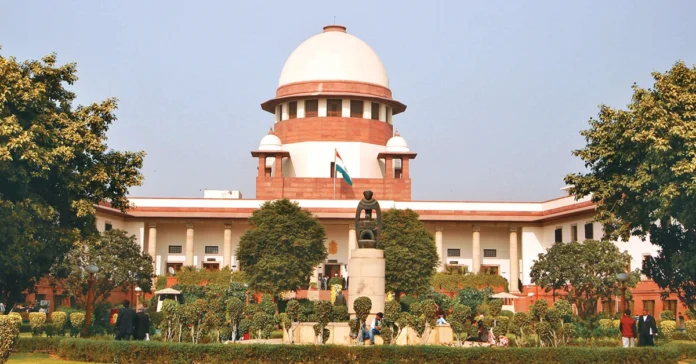The Supreme Court of India has directed the Election Commission of India (ECI) to accept the Aadhaar card as a twelfth valid identity document for the purposes of inclusion in the electoral rolls during the Special Intensive Revision (SIR) exercise currently being undertaken in Bihar.
The Bench, comprising Justice Surya Kant and Justice Joymalya Bagchi, clarified that while Aadhaar may legitimately serve as an instrument of identification, it cannot, under any circumstances, be construed as evidence of citizenship status. The Court underscored the constitutional and statutory position that citizenship in India is determined solely under the Citizenship Act and allied laws, and therefore Aadhaar, by its very design, remains restricted to confirming identity, not nationality.
The directive arose in the backdrop of ongoing disputes and confusion surrounding the documents permissible for establishing a citizen’s eligibility to be enrolled in the voter list. The petitioners contended that Aadhaar, already widely held across the country and mandated for numerous civic and financial purposes, should logically be treated as sufficient proof of identity during the voter registration process. The Election Commission, on its part, had earlier been hesitant to formally include Aadhaar in the list of accepted documents, citing the absence of explicit notification.
In response, the Court invoked Section 23(4) of the Representation of People Act, observing that the ECI possesses ample authority to specify the documents admissible for such verification. The Bench, therefore, instructed the Commission to issue an official notification or circular directing all electoral registration officers in Bihar to recognise Aadhaar as an additional valid document, subject to proper authentication of its genuineness.
Importantly, the Court balanced its ruling with a note of caution. It emphasised that acceptance of Aadhaar must not dilute the larger principle that only Indian citizens are eligible to be included in the electoral rolls. The judges reiterated that Aadhaar does not bestow citizenship, nor can it replace documents that establish nationality. Instead, its utility in this context is confined to streamlining identification and facilitating smooth conduct of the electoral revision exercise.
The judgment holds wider implications, as it effectively expands the range of documents available to applicants for electoral registration. With Aadhaar being one of the most widely held identification instruments in India, the ruling is expected to reduce procedural hurdles for citizens seeking to enrol in or update electoral rolls. At the same time, the Court’s explicit caveat ensures that the sanctity of citizenship remains protected under constitutional and statutory frameworks.
By directing the Election Commission to formalise this inclusion through a clear communication to all officials involved in the revision process, the Supreme Court has sought to achieve both administrative clarity and legal precision, thereby addressing long-standing ambiguities regarding the use of Aadhaar in electoral matters.


